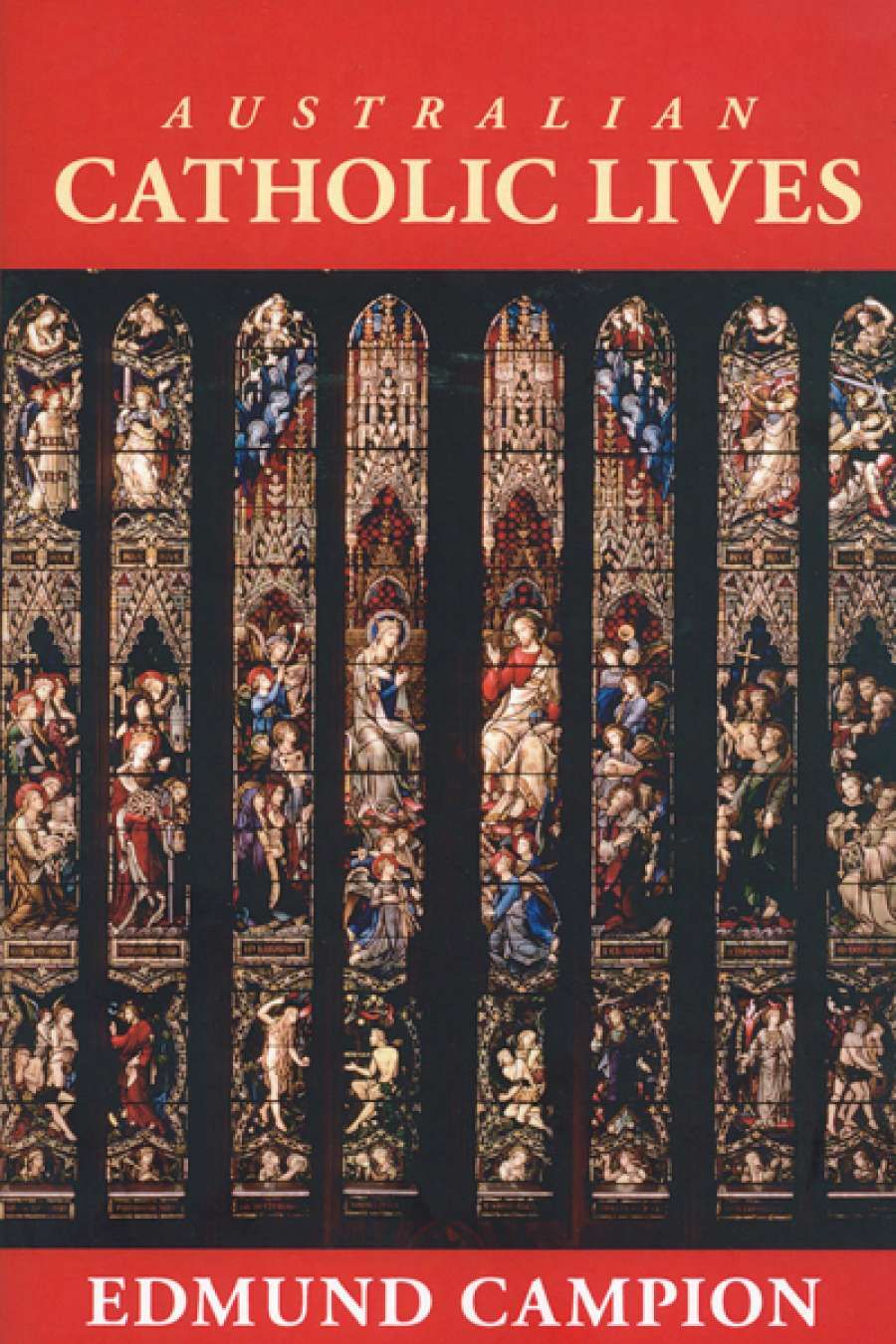
- Free Article: No
- Contents Category: Religion
- Custom Article Title: Simon Caterson reviews 'Australian Catholic Lives' by Edmund Campion
- Book 1 Title: Australian Catholic Lives
- Book 1 Biblio: David Lovell Publishing, $24.95 pb, 228 pp, 9781863551458
Australian Catholic Lives contains some seventy pen portraits spanning convict settlement to recent events, such as the attack on the Twin Towers, whose victims included Australians. Among those who perished when the building collapsed was a computer scientist from Sydney named Stephen Tompsett, a man who had decided to devote his life to helping people around him, only to die young in an act of mass murder along with thousands of other people from many countries and various backgrounds.
‘The Jewish philosopher Hannah Arendt once wrote a book about the “banality of evil” – meaning that evil is commonplace, everyday, you meet it in the streets coming from the shops. Stephen Tompsett’s shortened life tells us that you can say the same about goodness – it is ordinary, everyday, you can meet it in your local parish,’ affirms Campion.
One not dissimilar story concerns Liz O’Neill, a diplomatic press officer who helped Australians in Bali after the 2002 terrorist bombing and who died in a 2007 plane crash in Indonesia. Although her name was linked publicly to those two tragic events, Campion describes the private desire born of faith that drove her to help others.
Campion reminds us that church history is replete with quiet, community-minded achievers. One chapter illustrating this theme concerns Bernadette Foster, Melbourne-based founder of the Catholic Women’s League, one of several such organisations established throughout Australia in the early part of the twentieth century. Foster was a lay pioneer of the ecumenical movement and a key organiser of parish services for disadvantaged groups, including migrant women. After her death, Foster’s lifetime of service received official recognition by the Vatican. ‘One day, no doubt, Berna Foster – housewife, mother, inspirational parishioner – will be forgotten, remembered only on the list of those holding papal honours. The continuance of Catholicism as a people’s religion, however, depends above all on such women always being there.’
‘Campion writes within the short lives format without any apparent sense of constraint’
Overall, Australian Catholic Lives provides a snapshot of the nation’s history from the point of view of the Catholic faith and identity of the individuals discussed. Though working in miniature, Campion never loses sight of the bigger historical picture, and indeed is adept, as any good historian or clergyman would be, at using the particular to illustrate the general.
This book led me to think that the supposedly unique character of Australian society is often overstated. The vaunted concept of mateship, for example, is explained in universal terms by the author thus: ‘Christians call it charity.’ That observation is made in a chapter on Les Bolger, a survivor of Changi who was shipped by the Japanese along with other POWs on a vessel mistakenly torpedoed by a US submarine. It was Bolger’s self-appointed task when he finally returned to Australia to tell his best mate’s mother that her son had died in the friendly-fire incident. Campion notes that the POWs who were starved to death by their captors never died alone: ‘there was always someone to sit beside a dying man, to say a prayer perhaps and to hear his last words.’
‘Though working in miniature, Campion never loses sight of the bigger historical picture’
In an understated way, this book presents a strong case for Australian history to be seen in terms of the religious beliefs of its people. According to Campion, the early Irish convicts weren’t simply the first Catholics to settle in this country. ‘They also, in strong measure, contributed to the creation here of that society of second chance which would make Australia the most successful penological [sic] experiment in history.’
Elsewhere in the context of his discussion of the historian Patrick O’Farrell, the author of the first general history of Australian Catholics, Campion argues further that Irish Catholics were central to the eventual forging of an Australian identity. He writes: ‘Australia was not “made in England”, as an essay by David Malouf contends; it is a home-made construct, as distinct as bush carpentry. By refusing to submit to the English/British hegemony, the Irish opened the way to today’s pluralist and multicultural society. The Irish were our first ethnics.’


Comments powered by CComment